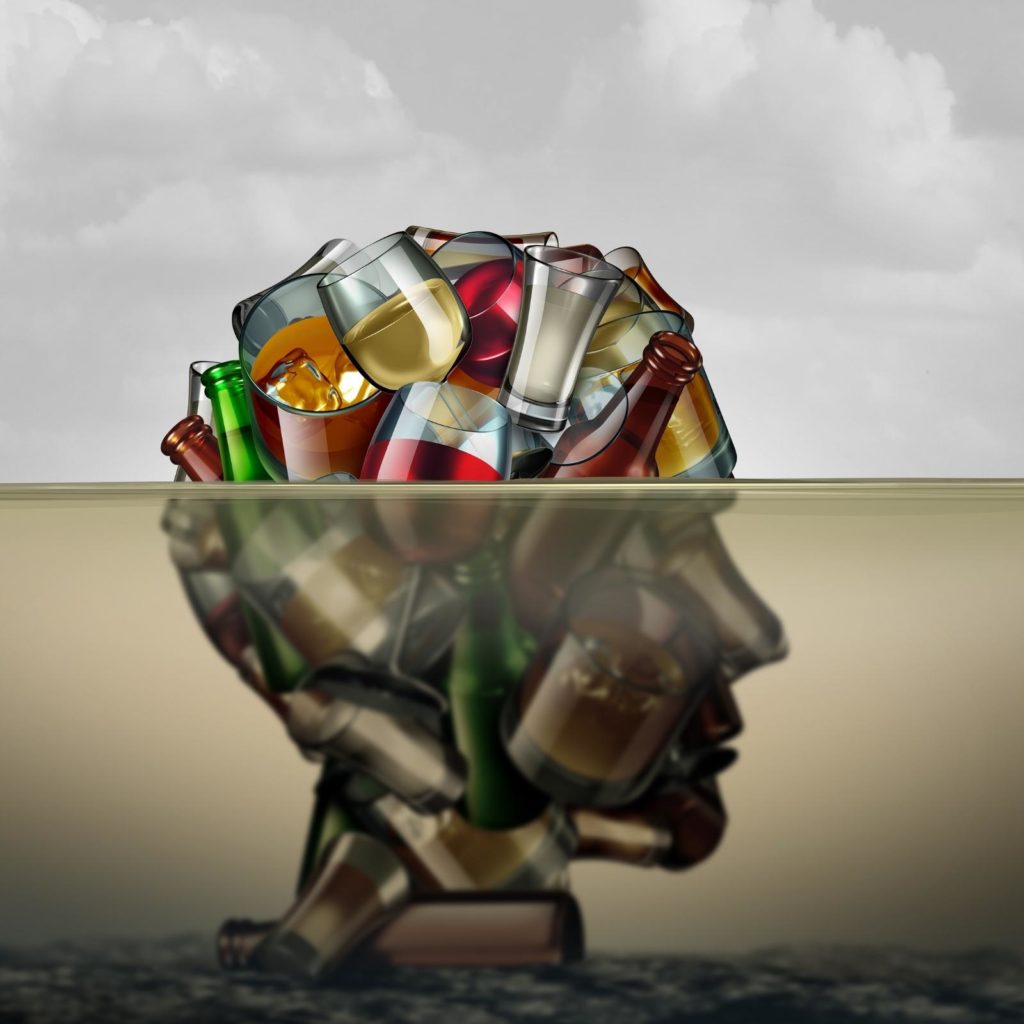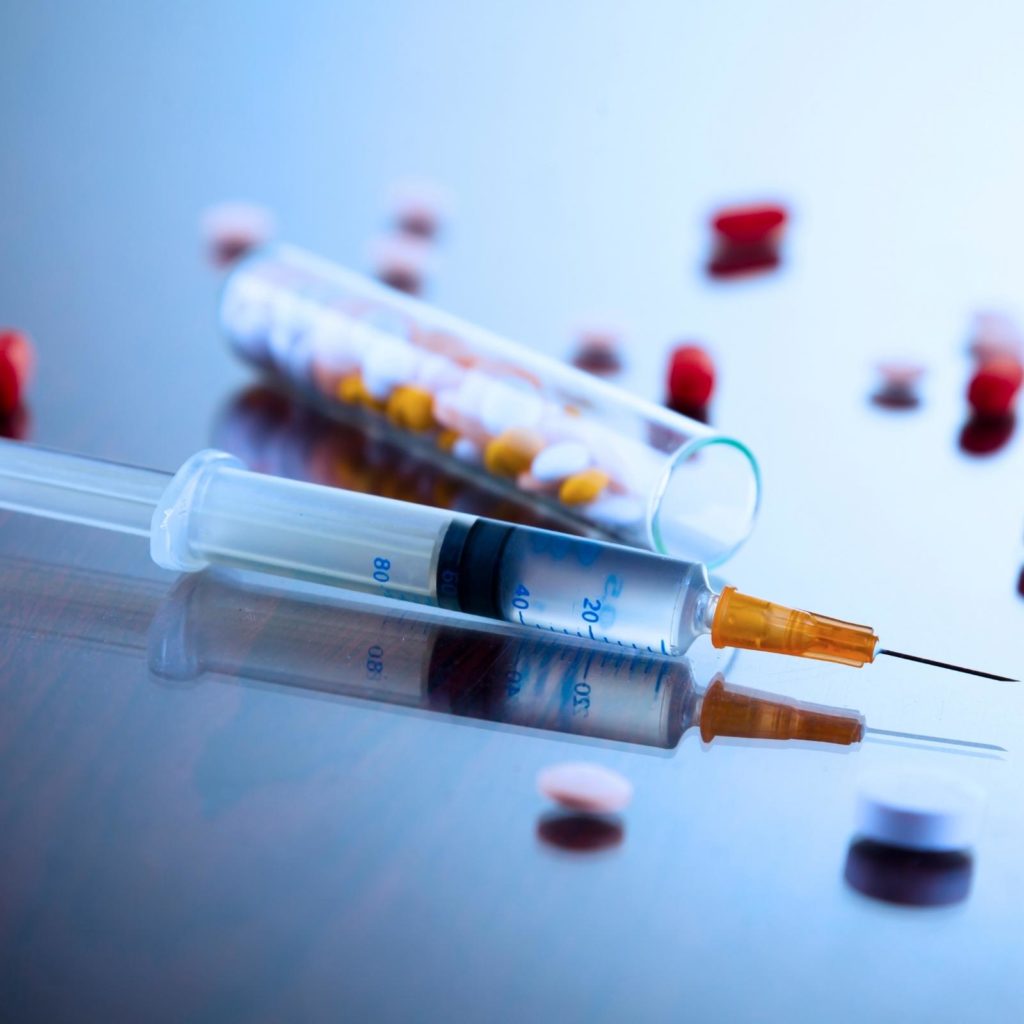What is Heroin?
Heroin, also known as diacetylmorphine, is an opioid drug made from morphine, a natural substance taken from the seed pod of the various opium poppy plants grown in Southeast and Southwest Asia, Mexico, and Colombia. Heroin can be a white or brown powder or a black sticky substance which is commonly known as black tar heroin. Heroin can be snorted/sniffed, injected, or smoked. All three methods can lead to heroin addiction and other severe health problems.
Some users mix heroin with crack cocaine, a practice called drug speedballing. Heroin enters the brain rapidly and binds to opioid receptors on cells located in many areas, especially those involved in feelings of pain and pleasure and in controlling heart rate, sleeping, and breathing.
Heroin is addictive, and there is a high risk of opioid overdose and death from using this illicit drug. Heroin also often contains additives and other cutting agents such as fentanyl, sugar, starch, or powdered milk, that can clog blood vessels leading to the lungs, liver, kidneys, or brain and cause permanent damage. In addition, sharing drug injection equipment and having impaired judgment from drug use can increase the risk of contracting infectious diseases such as HIV and hepatitis.

Heroin is a Schedule I drug under the Controlled Substances Act of 1970, with no approved medical use in the United States. A person can easily overdose on heroin. An overdose happens when heroin produces severe effects and life-threatening symptoms. Death from heroin overdose happens when the drug depresses the parts of the brain that control breathing.
Get Help. Get Better. Get Your Life Back.
Searching for Accredited Drug and Alcohol Rehab Centers Near You?
Even if you have failed previously and relapsed, or are in the middle of a difficult crisis, we stand ready to support you. Our trusted behavioral health specialists will not give up on you. When you feel ready or just want someone to speak to about therapy alternatives to change your life call us. Even if we cannot assist you, we will lead you to wherever you can get support. There is no obligation. Call our hotline today.
(844) 597-1011How Does Heroin Affect The Brain?
The opioid crisis is devastating America. Overdoses have become the leading cause of death for Americans under 55. The opioid epidemic has killed more people than H.I.V. at the peak of that disease, and its death toll exceeds those of the wars in Iraq and Vietnam combined. Funerals for young people have become common. Every eleven minutes, another life is lost. This begs the question – what does heroin do to the brain? Why do so many people start using these drugs? Why don’t they stop?
Heroin releases excessive amounts of dopamine in the brain. This depletes neurotransmitters of brain chemicals and teaches the brain that it needs heroin to function. This causes withdrawal in the absence of heroin and can lead to mental disorder symptoms of anxiety and depression. Heroin can also cause frontal lobe damage, which impacts attention, memory, and spatial awareness.
Excessive use of heroin can cause a lack of oxygen to the brain leading to overdose and long-term effects on movement, vision, mood, and other vital functions. In addition, more severe heroin overdoses may cause a person to stop breathing entirely, triggering even more severe brain damage. In this case, the effects are similar to a stroke. Depending on the area of the brain deprived of oxygen, a person may have a wide range of symptoms, including:
- Trouble with reading and writing
- Memory loss
- Vision and hearing loss
- Loss of balance and coordination
- Problems walking or moving
- Irritability, depression, or confusion

Heroin Stops The Brain from Producing Its Own Opioids
What does heroin do to the brain? Using heroin causes the brain’s opioid receptors to absorb a large number of opioids from an outside source. As a result, the brain produces less natural or endogenous opioids. Having fewer natural opioids to help ward off pain can cause the brain to rely on the pain relief that heroin supplies. As someone continues to rely on heroin, the brain starts to develop a physical dependence on the drug.
Once the brain becomes chemically dependent on heroin, the person will experience withdrawal symptoms if they stop using the drug. In addition to becoming physically dependent on heroin, the brain’s tolerance for the substance may increase as well, meaning the person needs larger doses of the drug to have the same pain-relieving and euphoric effects.

Get Your Life Back
Find Hope & Recovery. Get Safe Comfortable Detox, Addiction Rehab & Dual Diagnosis High-Quality Care.
Hotline(844) 597-1011
Heroin May Cause Cognitive Impairment
Chronic and long-term use of heroin can severely impair the brain. Using heroin for a long period of time allows harmful proteins to build up in the brain. Chronic heroin use can also cause brain inflammation and cause structural changes similar to those associated with Alzheimer’s disease. When this occurs, the person might experience symptoms similar to dementia such as confusion, mental decline, personality changes, lack of restraint, nervousness, depression, paranoia, and memory loss.
Heroin Use Can Deteriorate White Matter in The Brain
Continual and excessive use of heroin can destroy the white matter in your brain. Losing large amounts of white matter can negatively affect the user’s ability to reason and make decisions. A decreased amount of white matter in the brain might also make it hard for the person to regulate behavior and deal with stress.
Heroin Can Create Long-Term Imbalances In The Brain
What does heroin do to the brain? Long-term use of heroin can change the physical structure of your brain, which throws hormonal and neurological systems out of balance. Reduced sex hormones as a result of heroin use can cause chronic fatigue, depression, loss of muscle mass, and osteoporosis. Hypogonadism, or a failure of the ovaries in women and gonads and testes in men, is another side effect of chronic heroin abuse. Neurological imbalance can cause genetic disorders, strokes, infections, seizures, dementia, and Parkinson’s disease. Even though you can reverse some hormonal and neurological imbalances, others are irreversible or may be difficult to treat even after you stop using heroin.
First-class Facilities & Amenities
World-class High-Quality Addiction & Mental Health Rehabilitation Treatment
Rehab Centers TourRenowned Addiction Centers. Serene Private Facilities. Inpatient rehab programs vary.
Addiction Helpline(844) 597-1011Proven recovery success experience, backed by a Team w/ History of:
15+
Years of Unified Experience
100s
5-Star Reviews Across Our Centers
10K
Recovery Success Stories Across Our Network
- Low Patient to Therapist Ratio
- Onsite Medical Detox Center
- Comprehensive Dual-Diagnosis Treatment
- Complimentary Family & Alumni Programs
- Coaching, Recovery & Personal Development Events
What Does Heroin Do To The Brain? Link Between Heroin and Dopamine
There are many factors that go into whether an individual who experiments with heroin will continue to take them long enough to become addicted. For individuals who do continue on that path, they do so because heroin provides intense feelings of pleasure and euphoria.
When an opioid-based drug such as heroin travels through the bloodstream to the brain, the chemicals in the drug attach to opioid receptors and specialized proteins. The bonding of these chemicals to the receptors triggers the same biochemical reaction that gives individuals a feeling of pleasure when they engage in activities, such as sex or eating. Heroin abuse activates the midbrain reward system. This system generates signals in the part of the brain that result in the release of the brain chemical called dopamine.
The release of dopamine is what causes feelings of euphoria. In other words, the brain is flooded with dopamine, causing pleasure. These feelings are so intense that they start to train the brain that they are superior to those that occur naturally. This reinforces that the brain should continue to seek heroin more and more until the brain starts to prefer these effects to anything else.
World-class, Accredited, 5-Star Reviewed, Effective Addiction & Mental Health Programs. Complete Behavioral Health Inpatient Rehab, Detox plus Co-occuring Disorders Therapy.
CALL(844) 597-1011End the Addiction Pain. End the Emotional Rollercoaster. Get Your Life Back. Start Drug, Alcohol & Dual Diagnosis Mental Health Treatment Now. Get Free No-obligation Guidance by Substance Abuse Specialists Who Understand Addiction & Mental Health Recovery & Know How to Help.
Signs and Symptoms of Heroin Addiction
Heroin is a highly addictive street drug that can literally ruin a user’s life in a matter of days. In just a single dose of heroin, the body adjusts to the drug and craves more. Users can experience withdrawal symptoms after just seventy-two hours of heroin use. Chronic use is often responsible for intense cravings, strong physical dependence, and severe withdrawal symptoms.
If you suspect that someone you know may be struggling with heroin addiction, consider the following signs that help is needed:
Needle Marks – heroin users commonly inject heroin using transdermal needles. The needles are responsible for track or needle marks on the legs, arms, or other areas of the body. These needle marks may become infected and inflamed and may appear as boils or deep tissue infections beneath the skin.
Isolation – Heroin abuse is usually responsible for extreme isolation from loved ones. As the heroin user dives deeper into a state of addiction, isolation from family members and friends becomes more common and noticeable.
Withdrawal Symptoms – one of the most prominent signs of heroin addiction is the withdrawal symptoms that a user will experience when he or she is quitting taking heroin. Withdrawal symptoms can include nausea and vomiting, anxiety, diarrhea, tension, and anger.
Tolerance – Chronic heroin use can quickly lead to an increase in tolerance to this drug. The heroin user will soon need excessively larger doses or more frequent doses in order to curb withdrawal symptoms and keep cravings at bay.
Excessive Spending – Suffering from unexplainable financial struggles or overspending is one of the first signs of heroin addiction that family members or friends will notice. The user often spends all of his or her money on heroin and cannot explain the reason for their financial struggles.
Overdose – increasing tolerance to heroin will often lead the user to overdose.
Disease – HIV, AIDs, and other infectious diseases are common in people who suffer from heroin addiction. Such diseases result from sharing needles, promiscuous or unsafe sex, and similar behaviors.
Changes in Sleep Patterns – one of the earliest signs of heroin addiction is related to the heavy sleep that the user generally takes part in.
Lack of Interest in Hobbies – heroin abuse will cause a user to feel no desire to take part in activities that were once fun. As the heroin user becomes more heavily addicted, he or she will care less and less about hobbies.
Preoccupied – a sure sign of heroin addiction is the preoccupation that comes with this disease. The user will focus much of his or her time on finding, using, and recovering from the drug use. This process is repeated over and over again as the drug use essentially consumes the user’s life.

Early on, there may be no symptoms of heroin addiction, also known as opioid use disorder, especially if the person is going to great lengths to hide their use. As heroin use increases, it can get harder to hide. Symptoms of heroin use can include:
- A warm flushing feeling on the skin
- Dry mouth
- Nausea
- A leaden feeling in the arms and legs
- A severe itching sensation
- Vomiting
- Drowsiness (may persist for several hours)
- Slowed heart rate
- Clouded mental capacities
- Slowed breathing (can lead to permanent brain damage, coma, or death)
Heroin Addiction Treatment Center
Heroin addiction is a chronic disease and should be treated the same as other chronic diseases. Like those, it should constantly be monitored and managed. Heroin is a type of opioid. Opioid addiction treatment is different for each individual. The main purpose of opioid addiction treatment is to help the person stop using the drug. Opioid addiction treatment also can help the person avoid using it again in the future.
The body does go through specific symptom stages known as the opioid withdrawal timeline. The opioid withdrawal timeline varies from a few days to a few weeks, depending on the type of opioid that was used, how long it was used, and any other substances that may have been used in conjunction with opioids as well. Medically managed withdrawal opioid detox ensures the individual remains safe and stays as comfortable as possible.
Detox Treatment
The first step in treatment is medical detox. It will help you navigate the complicated withdrawal process, but it doesn’t address patterns of thought and behavior that contribute to heroin abuse. Various treatment approaches and settings can help provide the ongoing support necessary to maintain long-term sobriety after you complete detox.
Cravings are very common during detox and can be challenging to overcome. This often leads to relapse. Constant medical care provided during inpatient treatment helps prevent relapse. Clinicians can provide necessary medication and medical expertise to lessen cravings and the effects of withdrawals.
Psychotherapy
Several different modalities of psychotherapy have been used in the treatment of depression, including:
- Cognitive Behavioral Therapy (CBT) – is an effective treatment that involves making changes in both the patterns of negative thoughts and the behavioral routines which are affecting the daily life of the depressed person for various forms of depression.
- Dialectical Behavior Therapy – is a comprehensive mental health and substance abuse treatment program whose ultimate goal is to aid patients in their efforts to build a life worth living. The main goal of DBT is to help a person develop what is referred to as a “clear mind.”
- Person-Centered Therapy – is a strategy that allows and encourages clients to understand and resolve their concerns in a safe, supportive environment.
Dual Diagnosis Treatment
Substance abuse and mental health disorders often co-occur. In many cases, traumatic experiences can result in a mental health disorder and substance abuse. Dual diagnosis programs treat both of these issues together. The best approach for the treatment of dual diagnosis is an integrated system. In this strategy, both the substance abuse problem and the mental disorder are treated simultaneously. Regardless of which diagnosis (mental health or substance abuse problem) came first, long-term recovery will depend largely on the treatment for both disorders done by the same team or provider.
Medication-Assisted Treatments
Medication-Assisted Treatments (MAT) for substance use disorders and mental health disorders are commonly used in conjunction with one another. This includes the use of medications and other medical procedures. During your rehab, the staff from your treatment facility will help you identify what caused your addiction and teach you skills that will help you change your behavior patterns and challenge the negative thoughts that led to your addiction. Sometimes, the pressures and problems in your life lead you to rely on substances to help you forget about them momentarily.
Now that we’ve answered the question “ what does heroin do to the brain?”, hopefully, this will give you an idea of what drugs you’re dealing with. If you or your loved one is suffering from Opioid withdrawal symptoms and addictions, and at some point experienced opioid overdose symptoms, indeed, help is just a phone call away. Professional opioid addiction treatment is necessary for fast and effective recovery. Contact us today at We Level Up treatment facility. We provide utmost care with doctors and medical staff available 24/7 for life-changing and lasting recovery. We offer an enhanced opportunity to return to a fulfilling and productive life.

Experience Transformative Recovery at We Level Up Treatment Centers.
See our authentic success stories. Get inspired. Get the help you deserve.
Start a New Life
Begin with a free call to an addiction & behavioral health treatment advisor. Learn more about our dual-diagnosis programs. The We Level Up Treatment Center Network delivers recovery programs that vary by each treatment facility. Call to learn more.
- Personalized Care
- Caring Accountable Staff
- World-class Amenities
- Licensed & Accredited
- Renowned w/ 100s 5-Star Reviews
We’ll Call You
Sources
[1] CDC – https://www.cdc.gov/
[2] How Long Does Heroin Stay in Your System? – We Level Up NJ


